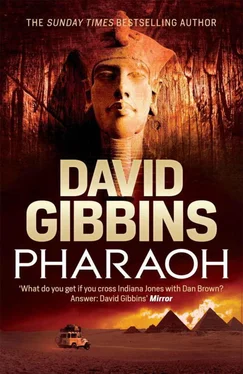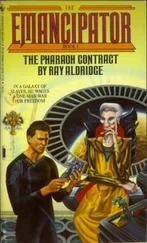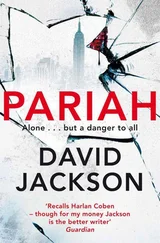He put his hand on his forehead, feeling the sticky dampness his fingers had picked up from the mud-brick wall. Everything seemed to be covered in a viscous overlay, as if the city were decaying and its putrescence seeping out around the edges, over the Nile and into the desert beyond. He remembered what this place had been before: a city whose population were either slave-dealers or the slaves themselves, people who had either discarded morality or whose morality had been destroyed when they were put in chains. A city like that had been in a state of decay long before the siege had begun, its rotting core concealed perhaps by the bustle of trade and the thin carapace of civilised normality provided by the governor and his administration. With those gone it was as if the horror had been allowed to surface, the decay to ooze out. The darkness he saw now in the corners and alleyways was not merely shadows, but something more substantial, a malaise that would soon swallow the skeletal houses and leave nothing there at all, a decaying mound eviscerated of life, like the ancient city-mounds he had seen in the desert to the north.
Seeing the emaciated forms of the people had made him conscious of his own body, of the sparseness of muscle on his forearms, the gaunt cheeks beneath his beard. It was as if all that had hardened him, toughened him up for the desert journey, had in reality been preparation for Khartoum, reducing him to a state where he could be absorbed by the city and stand alongside others as a supplicant to the man who had arrived in their midst like a prophet. But the spareness of his frame scarcely registered against those he had seen on the other shore. This had been a city without food for weeks, apart from the dwindling supply of grain that Gordon must have kept for his own people. The only conceivable sustenance could have come from the corpses that mounted every day, dead through starvation or disease or gunfire; even so, their withered bodies could scarcely have provided palatable nourishment. He caught himself up, suddenly horrified by the ease with which he had assumed the worst. But contemplating Khartoum was like looking at one of the medieval paintings of hell that so fascinated Corporal Jones, where imagining the concealed horrors was worse than the visible images. He wondered how many other cities had gone this way, their inhabitants reduced to living without meaning, solely for survival, until they were mere shadows; and how many of the stark white ruins he had visited, places like Akhenaten’s capital Amarna, had ended their days not in quiet abandonment but in squalor and amorality and putrescence, reeking of decay.
He heard a footfall outside the wall, and Charrière slid alongside him and squatted down. ‘I’ve found a small reed boat, about the size of a canoe. I’ve used my knife to make you a paddle from a piece of plank. It’s crude, but it will do. The channel will take you to within a hundred yards of the island, so you will need to go without making a sound, just as we used to when we crept up on deer on the shore of our lake in the forest.’
It was the first time Charrière had spoken of their past. Mayne had a sudden vision of the two of them as boys half a lifetime ago in Canada, of the birch-bark canoe that Charrière’s father had made him, of the trust they had had in him that he had betrayed by leaving. He started to say something, to tell Charrière how much he wished they were back there now, how sorry he was for letting him down all those years ago, but then he looked into Charrière’s eyes, cold, hard, dark, and said nothing. He raised himself up, keeping below the level of the walls. ‘A reed boat is good. There will be no noise if I go over a rock.’
Charrière looked back out over the desert, scanning the gloom and frowning.
‘What are you thinking?’ Mayne asked.
‘There are no camels, but I sense it. There are others there.’
Mayne stared at him. ‘Our pursuers? There’s been no sign of them since Abu Klea.’
‘I have not been able to backtrack at night and look for them. We have been on the move continuously.’
Mayne looked around. ‘There might be others hiding here in these ruins, people who have made it across from the city.’ He remembered Shaytan telling him that on the way out from Khartoum on the steamer, he had spotted figures along the banks of the Nile, scarcely human forms with distended bellies and bulbous eyes crawling over the mud and catching fish with their bare hands, eating them raw.
‘When you have gone across the river, I’ll look around. If there is anyone here, I will find them.’ Charrière handed him a cut section of reed and pointed to the hollow inside where he had pushed out the pith. ‘If you are shot at while you are on the river, you can drop over the side and breathe through this. Bullets are stopped after only a few feet underwater. You will be safe.’
Mayne thought of the women and chidren he had just been watching, and of the crocodiles. He would rather lie on the boat and be like a crocodile himself, become one with this reed boat as he had once done with a canoe, slide stealthily below the line of vision of anyone watching until he reached the other side. He pointed to the case with the rifle he had laid beside the wall. ‘If I come back without Gordon, I’ll set that up. My job is to protect him until Wilson arrives with the steamers and gives Gordon a final chance to leave. Until then I am to shoot any Mahdists that attack the palace.’
Charrière peered at him, and then at the palace opposite, narrowing his eyes. ‘Kahniekahake will have his work cut out for him. He may be able to take down a few attackers, but if the Mahdi comes, he will not be able to save General Gordon.’
Mayne was stunned. It was the first time he had been called by his Mohawk name since he was a boy: Kahniekahake, Eagle Eye. He swallowed hard. Now of all times he needed to keep focused. He looked at Charrière. ‘A few may be all it takes. It may keep Gordon alive until the morning.’
‘You need to leave now,’ Charrière said. ‘By the time you reach the boat, it will be dark enough to cross.’
Mayne followed him out of the pit, keeping below the ruined wall of the fort and then behind a ridge of mud that lined the riverbank. He felt a surge of feeling he had never felt before, a sudden overwhelming need to pour out emotion he had kept bottled up since his parents had died all those years ago, a need to reach out to Charrière and tell him the truth. He took a deep breath, holding it, ingesting the smell and taste of where they were, the horror of it and of what he was about to do. He was letting Charrière down again: he had lied to him about the rifle, and about his mission. He remembered the slip of paper with the black spot that Wilson had given him. Should he be required to enact the ultimate directive, there was one final deed he must do, a deed that would require him to shut off his emotions entirely and never return to them. He remembered Wilson’s last words as they parted ways in London three months ago, words that had drummed at him over the past few days like a headache. Nobody must know .
They reached a narrow muddy creek in the foreshore opposite the island. A line of planks led over the mud to the water’s edge, and Charrière pointed to the boat pulled up alongside. It was made from a single bundle of reeds, about twelve feet long, lashed around every foot or so and ending with a slightly upcurved stem and stern. It was pristine, almost luminescent against the brown and black of the creek; Mayne knew he would need to slap some mud on it before he left. It looked like something that the infant Moses might have been launched in, and was identical to model reed boats he had seen in the Antiquities Museum in Cairo. Yet again the ancient world had caught up with him, like a hiccup from the past, unpredictable, unnerving. He stepped on the plank, swaying precariously for a moment as it decided whether to keep him on land or tip him towards the river, and then slid down it as it slapped into the mud, caught his balance and turned round.
Читать дальше












